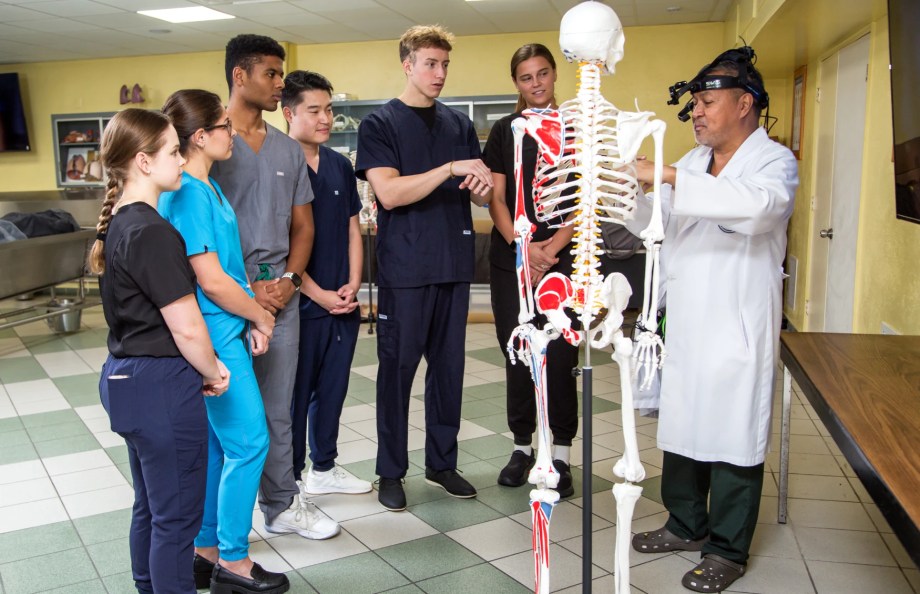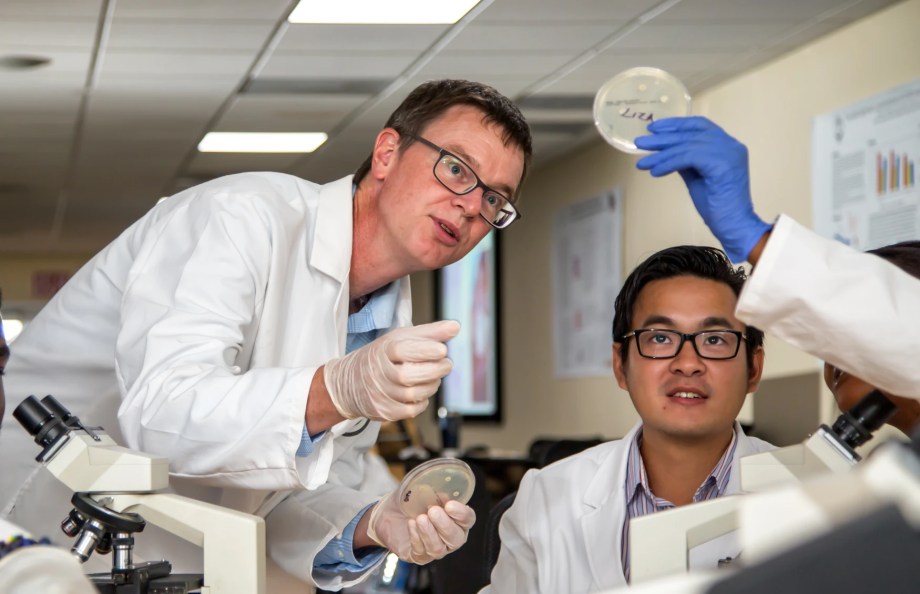
5 Tips to Overcome Challenges for Medical Students and Residents
Discover five challenges you may face during your medical training and how to overcome them effectively.
Last Updated: November 21, 2024.
Becoming a medical doctor is a rewarding career choice that requires dedication from the very start. As a medical student and then a resident doctor, you will face challenges, but these challenges can be overcome in many ways.
By knowing your own strengths and limitations, and showing grit, determination and discipline, you can overcome problems and excel in your career.
Read on for valuable tips and information for aspiring physicians who will need to learn how to overcome challenges in medical school, residency and beyond.
Tips for medical students
Every pre-med student should be aware of the challenges that lie ahead in their medical studies and career, and it is important to know how to successfully navigate them. Here are a few important strategies for overcoming challenges that can help medical students succeed:
1. Start with a reasonable study schedule
The medical school curriculum can be overwhelming at first. There is a lot of information to absorb, various evaluations to pass and high stress levels to manage. As a result, students can overwork themselves and get caught in tedious study schedules that are impractical and include no breaks.
Therefore, it’s important to develop a reasonable study schedule that integrates your daily routine. Set a wake-up time, eat a healthy meal, get some exercise and set aside an appropriate amount of time to study and complete assignments. Ensure that you also have a dedicated slot for your personal activities and hobbies as well. Setting a schedule that features all these elements will help you overcome one of the first challenges in medical school.
2. Know your study style
Every student learns differently and a learning pattern that works for one, may not be a fit for another. If you learn best while cramming notes, you may not need to set aside as much study time as someone else. However, it’s important that you set aside plenty of time early on, as it will not be as easy to cram medical school notes as it was in undergrad, and you will need to get used to the volume of information you will be managing. If you’re someone who requires more lead time to study effectively, build in even more time than you think you need. Your study schedule and methods should reflect what works best for you.
3. Work out a method to deal with a heavy workload
A medical student has to be prepared to deal with a heavy workload. In medical school, clinical rotations, medical residency and as a practicing doctor, you have to prioritize your time and work efficiently.
When managing your workload, it’s important to find a method that works for you and use it consistently. Aim to work this out early, so that you don’t become overwhelmed.
Something to consider is the 80-20 rule, where you first focus on high-priority tasks and the most relevant study topics. Since they require more time and focus, it’s best to wrap them up before you move to easier or less important things. You can make this division in your study planner to deal with complex assignments and difficult learning material easily. This way you will avoid stress and be on top of your study schedule.
4. Be aware of burning out
Medical school can be a stressful time, so it’s important to set aside time to unwind and have some fun. This is an important way to rest and refresh your mind. Make sure to continue doing things you enjoy and connecting with your friends, family and classmates. Keep in mind that consistent hard work pays off, but prioritizing your mental health is just as important in the long run. Not considering your own well-being is one of the more common obstacles of becoming a doctor.
5. Find your network
Having a good network is important in any field and the medical fraternity is no different. It’s important to get to know your faculty members and fellow medical students, as they can offer you knowledge and support that extends beyond any curriculum. Having supportive people around will make your time at medical school much easier and will help you flourish both personally and academically.
Tips for Overcoming Challenges faced by Residency Students
After graduating from medical school, new Doctors of Medicine progress into training called medical residency. During this time, recent graduates gain first-hand experience working in a hospital and begin adapting to the medical work environment. During medical residency, you’re considered a real doctor – even though you’re still supervised. While exciting, students should be aware of the challenges during this period and develop strategies for overcoming those challenges.
1. Develop a healthy work-life balance
As a resident doctor, you should make sure that you continue to strike a balance between your personal life and work commitments. Crucial as your job and continued learning opportunities are, you cannot neglect your own well-being. It is important to set aside time for fun, relaxation and personal engagements. You will likely want to prove yourself at every opportunity, but this shouldn’t be at the expense of your own health and wellness. SImply put, you cannot serve your patients or develop your career if you burn out.
2. Learn the best way to deal with stress
It is important to learn to accept your limitations and ask for help when necessary. As per the American Medical Association (AMA), engaging in mindful meditation, breathing exercises and talking about your issues with your peers helps a lot when dealing with stress.
3. Focus on developing the requisite clinical skills
Your primary purpose during residency is to develop the required skills needed for your chosen medical specialty. This is the time when you are trained by senior doctors and are expected to learn from their expertise. It’s important to prioritize developing your skills and gaining as much experience as possible during this time, as this will best-serve your long-term career goals. You should take on the mindset of a lifelong learner and avoid ever thinking you have already gained all the knowledge you will need. You can always improve and learn more.
4. Remember to be a team player
The fast-paced environment within a hospital means there is always someone who needs help or support. This can be a patient, a doctor or one of your fellow residents. Therefore, it is very important to be a team player and help out others whenever possible. Being empathetic and supportive will help you in the long run, as both co-workers and prospective patients are more inclined towards attentive doctors who listen well and show patience.
5. Don’t let the fear of failure hold you back
While being supervised, the pressure of not making a mistake and risking failure can sometimes negatively influence your progress as a doctor in training. It is important to channel any fear or stress you feel into working harder and learning more. Do not let doubt slow you down or cause you to give up. And as mentioned, make sure you are practicing self-care, so that you do not become physically or mentally overwhelmed by stress. Positive habits and a commitment to learning will go a very long way.
Final tip: Always remember the medical challenges you have faced and overcome. The knowledge of what you’ve already accomplished will encourage you when you face future obstacles. As well, it will help you appreciate your journey, truly value what you have achieved and have a helpful answer if a student ever asks you “what obstacles have you overcome?”
Conclusion
Looking to start your medical school studies? Check out the MD program offered by Saba University School of Medicine. We are proud to help students achieve USMLE success, residency placements and go on to practice in the U.S. and Canada. If you have any questions, please don’t hesitate to contact us.
Want to know what’s possible for graduates of our MD program? Check out this testimonial from an alum:
If you’re ready to begin your medical school journey, apply today! You can also apply by submitting a copy of your AMCAS, AACOMAS, TMDSAS or OMSAS application.
FAQs
Medical school burnout can be managed by prioritizing self-care, seeking support from peers and mentors, setting realistic goals and maintaining a balanced schedule that includes time for relaxation and hobbies. It’s also important to recognize signs of burnout early and address them proactively through counseling or other resources offered by the medical school.
Handling the stress of medical school involves developing effective study habits, staying organized, seeking help when needed and maintaining a healthy lifestyle. Time management skills, regular exercise, adequate sleep and healthy eating can all contribute to managing stress effectively during medical school. Additionally, staying connected with friends, family and supportive peers can provide emotional support and perspective.
Medical doctors often face challenges such as managing a heavy workload, dealing with high levels of stress and making time for their personal lives. It’s crucial for them to develop effective time management methods, maintain a balanced lifestyle and seek support from peers and mentors. Developing these approaches early on in medical school sets future practicing physicians up for a successful career.
Networking is crucial for medical students, as it helps them build relationships with peers, faculty and professionals in the field. A strong network provides support, guidance and potential career opportunities.

For prospective students
Saba is committed to supporting prospective students with any questions or queries throughout the application process. Please see the following links for detailed information about each topic:
If the information you are seeking is not provided here, please get in contact by contacting via WhatsApp here.
Get in touch for more information



